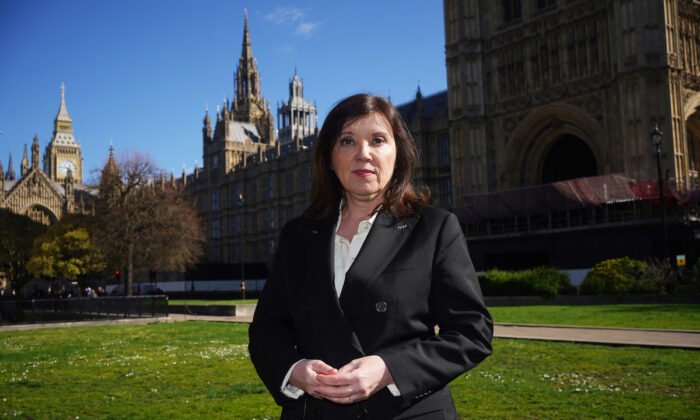Report: 270,000 Children in Need of Mental Health Support as They Wait
The Children’s Commissioner discovered that boys, white children, and younger children tended to wait longer on average for mental health assistance.
Almost a million children have been referred to youth mental health services, with the Children’s Commissioner stating that this generation of young people has undergone “uniquely uncertain and challenging times,” including the COVID-19 pandemic.
Out of these, nearly 305,000 entered treatment while around 372,800 (39 percent) had their referrals closed before receiving the service.
At the end of the year, over 270,300 children were still waiting, with approximately 32,200 waiting for more than two years for their second contact from CYPMHS.
The report also disclosed that boys, white children, and younger children all had longer wait times for support on average.
Boys had a median wait of 46 days compared to 29 days for girls. White children waited for a median of 35 days, while Asian and black children had the shortest wait times, with a median of 19 and 25 days, respectively.
Regarding age groups, children aged 13 to 15 were “by far” the largest group, constituting 37 percent of all those who entered treatment, despite only representing 17% of all children in England as noted by the Children’s Commissioner.
‘Not Surprising’ Children Are Experiencing Mental Health Problems
The Children’s Commissioner cautioned that “there is a growing group of children who are struggling with their mental health,” attributing it to various factors including experiencing their formative years during the COVID-19 pandemic and the current cost of living crisis.
“This generation of children has undergone uniquely uncertain and challenging times,” Dame Rachel mentioned. “Some have spent significant time isolated and indoors, worried about catching a deadly virus. They have felt the impact of a cost-of-living crisis and are acutely aware of the challenges their parents face.”
She also highlighted that children are constantly exposed to negative news about wars and climate disasters.
Additionally, Dame Rachel pointed out that an “increasing number” of children are being affected by the negative influence of social media, cyberbullying, and online exploitation.
She added, “Given this context, it is not surprising that the number of children experiencing poor mental health remains persistently high.”
1-in-5 Young People Have Probable Mental Health Disorder
In response to the Children’s Commissioner’s report, an NHS England spokesperson stated: “Recent data indicates that the NHS is providing treatment to more young people than ever before, with a 48% increase in children and young people accessing support since 2019/20. The healthcare system is expanding this service as rapidly as possible within the current five-year funding to meet the growing demand.
“However, there is still more work to be done, which is why there are plans in place to ensure that over half of pupils in schools and colleges have access to an NHS mental health support team by spring 2025—well ahead of the original target.”
In November 2023, the NHS released findings from a survey indicating that one in five children and young people in England aged 8 to 25 have a “probable mental disorder.”
Mental Health Hubs for Children and Young People
Last month, the government announced an additional £8 million in funding for 24 early support hubs, expanding access to mental health interventions for individuals aged 11 to 25.
These drop-in centers provide services such as counseling, psychological therapies, and group activities. Young people can utilize these services without a referral from a GP or school, catering to those who may not meet the criteria for NHS support.
In February, a study by the Resolution Foundation revealed that more young people are experiencing mental health issues compared to 20 years ago.
The research, supported by the Health Foundation, indicated that 34 percent of individuals aged 18 to 24 reported symptoms of common mental health disorders like anxiety, depression, or bipolar disorder in 2021–2022, a significant rise from 24 percent in 2000.
PA Media contributed to this report.





